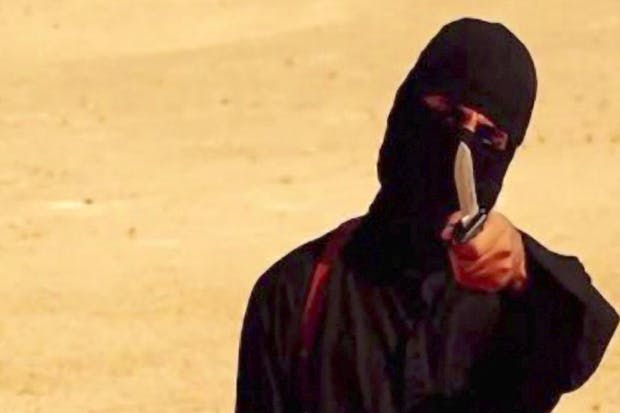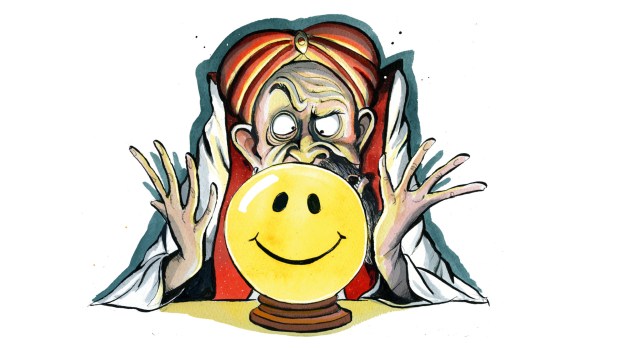The Islamic State is as monstrous an enemy as we have seen in recent history. It crucifies and decapitates its victims, holds teenage girls in slavery and burns captives alive. It is wrong to call it a medieval force, because such institutionalised barbarity was seldom seen in medieval times. As far as five centuries of records from the Ottoman Empire can establish, stoning was authorised only once. Isis now regularly stones suspected adulterers to death. It is not seeking inspiration from the Middle Ages. We are witnessing a modern form of evil — and it is spreading fast.
Labour MPs, now accustomed to receiving threats from hard-left activists, were told this week that they would have ‘blood on their hands’ if they voted for Britain to join the coalition against the Islamic State in Syria. That, in itself, is an extremist refrain: the idea that it is wrong to take the fight to any enemy, no matter how monstrous. In this case, the objective is to kill the leaders of the Islamic State and try to stop its advance. The United Nations has endorsed the mission (which is showing signs of success in Iraq) and the nine countries fighting it have been waiting to see if Britain would join in.
This is not a decision about whether to start a war in Syria: war has been ravaging the country for years. The chaos gave rise to the Islamic State, which now controls an area the size of Britain where people live under a reign of terror. The US-led -campaign against Isis, Operation Inherent Resolve, has been pounding its positions in Syria on a daily basis for almost 18 months without much success. The Islamic State has closed all roads out of Raqqa and uses the local population as human shields. This works; the US is unwilling to sanction drone strikes that kill ordinary Syrians. The White House admits that the campaign has reached a stalemate.
To have Britain become the tenth member of the coalition would not mean an end to Isis. It is rather depressing to see how little we can offer in this fight; we’re talking about bringing very limited support to a campaign that is running out of targets. George Osborne has said that the amount he can spare for the operation runs to the ‘low tens of millions’; the US spends more than this in Syria every week. After months of fighting the Islamic State in Iraq, the UK has managed only 8 per cent of the air strikes; in Syria, the Chancellor proposes doing even less. So the difference we would make is marginal.
So the reasons for acting are more political than military — but they are no less strong for that. Had the Islamic State attacked London and killed more than a hundred here, but the French refused to join in precision strikes against those who had done this to us, we would feel let down. Germany, like Britain, has hitherto avoided bombing Syria and instead focused on giving support to Kurds fighting Isis in Iraq. This week it responded to François Hollande’s call, and its government offered sending a naval frigate and a 1,200-strong force to the region. As Angela Merkel knows, the situation changed after the Paris attacks. It is now an issue of solidarity with our European allies.
Intelligence sources estimate that Raqqa is being held by just 500 Islamic State fighters who have billeted themselves with local civilians so that they cannot be targeted by airstrikes. Ground troops are vital, and may yet be deployed: a US-backed Arab-Kurdish alliance is stationed 35 miles north of Raqqa and is ready to move. But the problem is that we do not face a conventional military adversary; Isis could be routed from Raqqa, but such a victory would be short-lived without a -stable government. Out of another security vacuum would come another Isis. Even elsewhere in Syria, rebels destroyed by Russian-backed forces have been succeeded by the Islamic State.
The House of Commons has, over the years, been asked to consider major issues of war and peace: this is not one of them. Britain is being asked to provide a relatively small contribution to a campaign whose strength lies in its breadth of support. Not only Australia and Germany but several Muslim states — Saudi Arabia, Turkey, UAE and Bahrain — are united in their defiance of Isis. Britain has become conspicuous by its absence.
With a smaller military, Britain will have to rely more on alliances in future — not just out of decency, but out of self-interest. Defence spending, as a share of economic output, is near a historic low. Having fewer soldiers and serviceable aircraft means a greater reliance on friends: as the Strategic Defence Review put it earlier this month, the country’s ‘safety and security’ now ‘depends not just on our own efforts, but on working hand-in-glove with our allies to deal with the common threats’. But what does an alliance mean nowadays? That is the question now under consideration.
The Prime Minister has said he regards the fight against the Islamic State as part of a ‘generational struggle’ — winning it will require patience and careful strategy. Joining the Syrian bombing campaign at such a late stage may not tilt the military balance, but it will show that Britain is an ally that can be depended on. Defeating the Islamic State remains, for now, a distant objective. But it is time to play our part in the fight.
Got something to add? Join the discussion and comment below.
Get 10 issues for just $10
Subscribe to The Spectator Australia today for the next 10 magazine issues, plus full online access, for just $10.














Comments
Don't miss out
Join the conversation with other Spectator Australia readers. Subscribe to leave a comment.
SUBSCRIBEAlready a subscriber? Log in